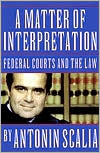Judging in a Therapeutic Key: Therapeutic Jurisprudence and the Courts
Part I of this book describes the newly emerging problem-solving courts (such as drug treatment courts, domestic violence courts, mental health courts, etc.) and other related approaches to problem-solving judging and judging with an explicit ethic of care. Authors Winick and Wexler show how judges can use therapeutic jurisprudence not only in specialized problem-solving courts, but in general civil and criminal judicial settings as well. In Part II, the book covers emerging "principles" of...
Search in google:
Part I of this book describes the newly emerging problem-solving courts (such as drug treatment courts, domestic violence courts, mental health courts, etc.) and other related approaches to problem-solving judging and judging with an explicit ethic of care. Authors Winick and Wexler show how judges can use therapeutic jurisprudence not only in specialized problem-solving courts, but in general civil and criminal judicial settings as well. In Part II, the book covers emerging "principles" of therapeutic jurisprudence that seem to be at work in successful judicial approaches: how courts can encourage offender reform, how they can help offenders develop problem-solving and coping skills, how they can encourage offender compliance with release conditions, how they can serve as effective risk managers, and much more.
ForewordAcknowledgmentsIntroduction3AThe Revolving Door13Out of Jail, Into Temptation: A Day in a Life13BDrug Treatment Court21Breaking the Cycle of Addiction: Officials Seek to Spread the Word on Drug Treatment Courts21Terry Emphasizes Counseling in San Jose25Research on Drug Courts: A Critical Review, 2001 Update27CJuvenile Drug Treatment Court31Crucial, Caring Attention: A New Juvenile Drug Court 'Team' Deals with Everything from Tattoos to Marijuana in an Effort to Turn Wayward Kids Around31'You Earn Your Freedom' Juvenile Drug Court Keeps Youths on Track35DJuvenile Dependency Drug Treatment Court39The Juvenile Dependency Drug Treatment Court of Santa Clara County, California39Fighting for Families42ESentencing Circles45Teen Bully Finds Justice, Healing and the Courage to Apologize: Sentencing Circle Requested by Mother of Suicide Victim45FTeen Court or Youth Court49Youths Face a Jury of their Peers: Teen Court Offers a Chance to Clear Records of Minor Offenses49Teen Court Never Loses Hope52GDomestic Violence Court55Court Cracks Down on Domestic Violence55Our View: Boise Needs New Method to Stop Domestic Violence57HMental Health Court59Mental Health Courts Focus on Treatment; Criminals Often Overlooked in Traditional System are Sentenced to Hospital Care59IA Hybrid Domestic Violence/Mental Health Court63Threat of Jail Helping Keep Mentally Ill on Medication: Domestic Violence Court Offering Program of Monitored Probation63JReentry Court67Staying Home: Effective Reintegration Strategies for Parolees67KProblem-Solving Courts Generally73Problem-Solving Courts: A Brief Primer73LTherapeutic Jurisprudence in Courts of General Jurisdiction87Judging for the New Millennium87ATherapeutic Jurisprudence as an Underlying Framework105Drug Treatment Court: Therapeutic Jurisprudence Applied106BPreliminary "Codifications" of Therapeutic Jurisprudence Principles111Conference of Chief Justices & Conference of State Court Administrators Resolution in Support of Problem-Solving Courts112Florida Statutes: Treatment-Based Drug Court Programs114Principles of an Effective Domestic Violence Court11610 Key Components of a Criminal Mental Health Court118Vision Statement of District Court of Clark County, Washington124Maryland's Family Divisions Performance Standard 5.1: A Therapeutic, Holistic, Ecological Approach to Family Law Decision Making125CInterpersonal Skills and the Psychology of Procedural Justice129Public Trust and Procedural Justice132A Change-Focused Approach for Judges137The Judge-Defendant Interaction: Toward a Shared Respect Process148The Therapeutic Value of the Civil Commitment Hearing156Judicial Behavior and the Civil Commitment Petitioner158DCountering Denial and Minimization165Sex Offenders and the Plea Process165Using Plea Procedures to Combat Denial and Minimization169EFacilitating Motivation to Change1771Creating Therapeutic Opportunity Out of Crisis177The Importance of Timing178Ascertaining and Encouraging Change1792Sparking Motivation and Reducing Perceived Coercion181The Judge's Role in Encouraging Motivation for Change181FEnhancing the Development of Problem-Solving Skills189Problem Solving and Relapse Prevention in Juvenile Court189GRisk Management201Domestic Violence Court Judges as Risk Managers201HEnhancing Compliance213Health Care Compliance Principles and the Judiciary213IBehavioral Contracting227How Judges Can Use Behavioral Contracting227JWorking with Offender-Victim Emotions231Working with Shame and Anger in Community Conferencing231KEncouraging and Maintaining Desistance249Robes and Rehabilitation249LBuilding Strengths255Welcome Home?: Examining the "Reentry Court" Concept from a Strengths-Based Perspective255MStructural and Administrative Principles285The Case for a Specialized Domestic Violence Court286A Unified Family Court294A Unified Drug Court297Monitoring Treatment Provision and Progress299Promoting Vicarious Learning through Case Calendaring300The Healing Potential of Intake and Processing Forms301The Therapeutic Potential of a Duty Judge302Judicial Pre-Trials in Child Protection Cases304NTherapeutic Techniques in the Appellate Arena313How Appellate Courts Can Use Therapeutic Jurisprudence313The Antitherapeutic Per Curiam Affirmance316Reducing Contentiousness through Legal Doctrine320About the Editors327Index329








